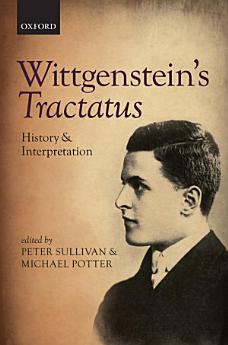Wittgenstein's Tractatus: History and Interpretation
Peter Sullivan · Michael Potter
Feb 2013 · OUP Oxford
Ebook
282
Pages
family_home
Eligible
info
reportRatings and reviews aren’t verified Learn More
About this ebook
This volume of newly written chapters on the history and interpretation of Wittgenstein's Tractatus represents a significant step beyond the polemical debate between broad interpretive approaches that has recently characterized the field. Some of the contributors might count their approach as 'new' or 'resolute', while others are more 'traditional', but all are here concerned primarily with understanding in detail the structure of argument that Wittgenstein presents within the Tractatus, rather than with its final self-renunciation, or with the character of the understanding that renunciation might leave behind. The volume makes a strong case that close investigation, both biographical and textual, into the composition of the Tractatus, and into the various influences on it, still has much to yield in revealing the complexity and fertility of Wittgenstein's early thought. Amongst these influences Kant and Kierkegaard are considered alongside Wittgenstein's immediate predecessors in the analytic tradition. The themes explored range across the breadth of Wittgenstein's book, and include his accounts of ethics and aesthetics, as well as issues in metaphysics and the philosophy of mind, and aspects of the logical framework of his account of representation. The contrast of saying and showing, and Wittgenstein's attitude to the inexpressible, is of central importance to many of the contributions. By approaching this concern through the various first-level issues that give rise to it, rather than from entrenched schematic positions, the contributors demonstrate the possibility of a more inclusive, constructive and fruitful mode of engagement with Wittgenstein's text and with each other.
About the author
Peter Sullivan is a Professor at the University of Stirling where he has taught since 1993. The primary focus of his published work has been on the founding figures of analytic philosophy: Frege, Russell, the early Wittgenstein, and Ramsey. Michael Potter, University Lecturer in Philosophy, University of Cambridge, and Fellow, Fitzwilliam College, Cambridge . He is the author of Sets (OUP, 1990), Reason's Nearest Kin (OUP, 2000), Set Theory and its Philosophy (OUP, 2004), and Mathematical Knowledge (edited with Mary Leng and Alexander Paseau, OUP, 2007).
Rate this ebook
Tell us what you think.
Reading information
Smartphones and tablets
Install the Google Play Books app for Android and iPad/iPhone. It syncs automatically with your account and allows you to read online or offline wherever you are.
Laptops and computers
You can listen to audiobooks purchased on Google Play using your computer's web browser.
eReaders and other devices
To read on e-ink devices like Kobo eReaders, you'll need to download a file and transfer it to your device. Follow the detailed Help Center instructions to transfer the files to supported eReaders.







